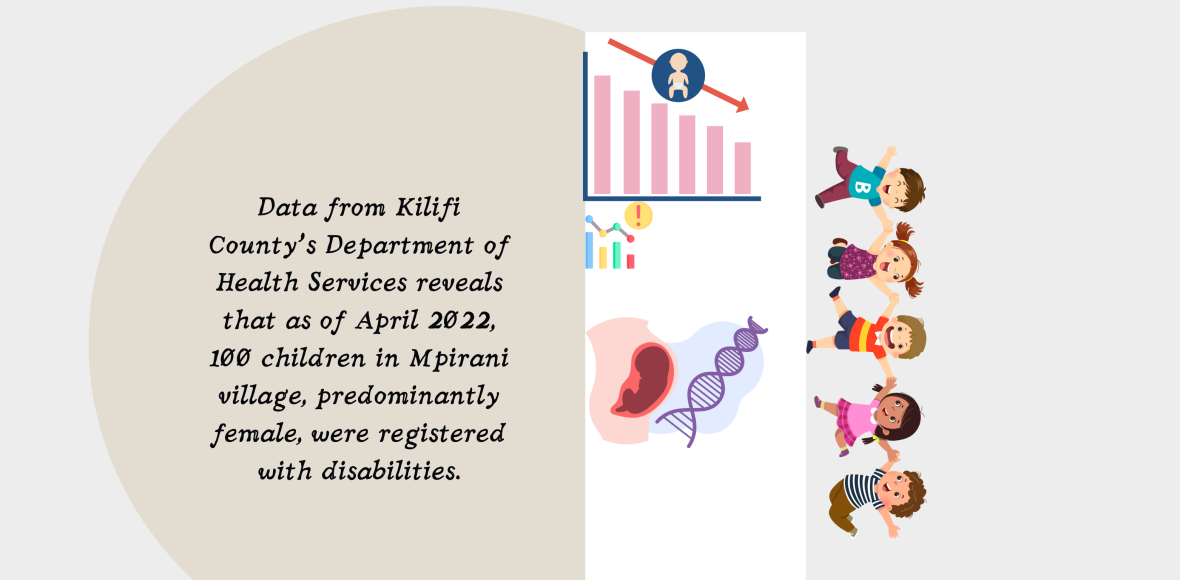
Data from Kilifi County’s Department of Health Services reveals that as of April 2022, 100 children in Mpirani village, predominantly female, were registered with disabilities. Despite attending antenatal clinics (ANC) and following dietary guidelines, many mothers like Eunice Boke and Sadia Mohamed have given birth to children with severe birth defects.
Eunice Boke, who has four children with defects, reports following a healthy diet and receiving assurances from healthcare providers. Similarly, Sadia Mohamed’s child was born blind and unable to walk, despite regular ANC visits and vaccinations.
Esther Njeri from Jipe Moyo Walemavu, a support group for people with disabilities, points to financial constraints and reliance on unskilled midwives as major issues. Ganze Sub County administrator Boniface Nganga highlights ongoing efforts to educate women on the importance of prenatal care.
Dr. Tobias Koi of Tudor Healthcare suggests environmental factors such as water and air quality might be contributing to the defects. Kilifi County’s 2024/2025 development plan shows only 55% of pregnant women attend the recommended four ANC visits, and 61.6% of children are fully immunized, partly due to vaccine shortages.
Local leaders call for government investigation and intervention. Community health providers emphasize the need for pregnant women to take folic acid and other micronutrients. Kilifi County Health Director Hassan Leli notes plans to introduce point-of-care ultrasound facilities to improve prenatal care and early detection of abnormalities.
Mpirani village elder Nelson Dzuya and other residents urge the government to address the rising cases of birth defects, emphasizing that the community relies on farming and lacks industrial pollution, suggesting other environmental factors might be at play.
By Esdaisy Njoroge

Leave a Reply